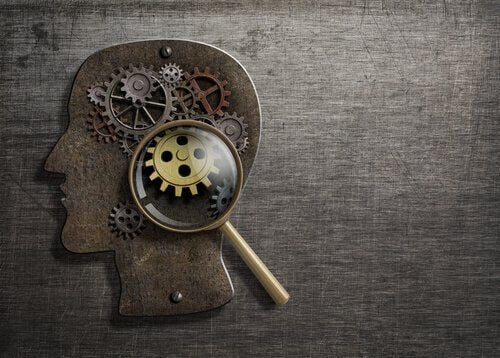One of the resources we have to adapt to the world is our behavior, this allows us to change our environment and our reality to adapt to what is happening, we know that our behaviors are mediated by internal mental processes, but what are these mental processes ?Here are our 8 basic psychological processes.
The 8 basic psychological processes are: (a) perception, (b) learning, (c) language, (d) reflection, (e) attention, (f) memory, (g) motivation and (h) emotion. , will be presented individually, but these processes are closely linked. Although they retain their terminological independence, many of them could not exist without others; it is then better to understand this distinction as an artificial classification that facilitates scientific work.
- In basic psychological processes.
- Perception is responsible for having an “image” of the reality around us.
- Because it gives us information about external stimuli through the senses.
Perception is responsible for organizing and making sense of any sensory stimulus, the function of this process is obvious: knowing the environment allows us to move and interact with it, basic aspects to achieve an effective adaptation.
Here we have the process by which we modify and acquire knowledge, skills, experiences, behaviors, etc. This works through what has happened in the past, we learn to link behavior to its consequences, so it is closely related to memory.
The study of learning is largely given by the psychological branch of conductism, which provides us with theories of classical and operational conditioning; these explain the mechanisms by which we learn.
This process is useful because it allows us to vary our repertoire of behaviors according to what has happened in the past, which helps us to react more adaptively in current and future situations.
The human being is a social being, so language is the process that gives us the ability to communicate with others, this communication, in the case of humans, is done through a complex symbolic code, language or language. The complexity of our language, allows us to accurately describe almost everything, whether in the past, present or future.
The usefulness of this process is given by our need to maintain complex social relationships that allow us to survive in a hostile environment. Language offers us a broad enough way to communicate to maintain human societies.
Here we are faced with a very complex process that, in psychology, is defined as the one responsible for transforming the information to organize it and make sense of it. The study of thought began with Aristotelian logic, but was not effective for its analysis, because human beings do not reason logically.
Reasoning is a fast but to some extent inaccurate process that allows us to act effectively in our environment.
The function of thought remains a controversial topic today, in part due to the terminological confusion that surrounds it; Even so, the most widely accepted idea is that its objective is to act as a control mechanism over the situations that arise.
Attention is the process of focusing our resources on a number of stimuli and ignoring the rest, as we receive a lot of stimuli that we cannot serve at the same time.
The care process is adaptive because, if it did not exist, we would be lost without knowing what stimulus we should react to. It is paradoxical that the self-imposition of cognitive limitation involves evolutionary adaptation, but this is the case.
The basic psychological process of memory allows us to encode the information to be stored and then retrieve it, we are faced with an essential process and closely linked to all other processes.
Memory allows us to memorize explicit information, such as the capital of France or procedural information, such as cycling. Memory exists because it is very useful to have information about our past experiences in order to reason and act on future events. Without this process, other basic psychological processes would not exist, since they all have solid memory support.
Among the basic psychological processes, motivation is responsible for providing the body with the necessary resources to carry out the behavior. This is the process of activating the body and putting it in the ideal state. Another important aspect of motivation is its directionality; not only does it prepare the bodywork, but it also handles steering between possible options.
The function of motivation is to get the individual to direct the driving towards their goals and goals and prevent them from standing still without any behavior, it is a process closely related to emotion and learning.
Emotions are reactions to external stimuli that allow us to guide our behavior and act quickly in response to the demands of our environment. Emotions have a triple component: (a) somatic, these would be the physiological changes that cause the emotion, (b) behavioral, here would come the aspect of the behavior that triggers the emotion and (c) the feeling, it would be the subjective emotional experience of the individual.
The function of emotion is to be able to direct our behavior quickly and effectively, most decisions do not have the importance of dedicating much time and resources to it, and that is where the emotion works, it is important to understand that any decision is mediated by our emotions to a greater or lesser extent.
In this article we expose the basic processes in a very superficial way, they are all topics of study broad and with many details, the intensive study of each of them provides us with basic information to understand the behavior and mental processes of the human being.

